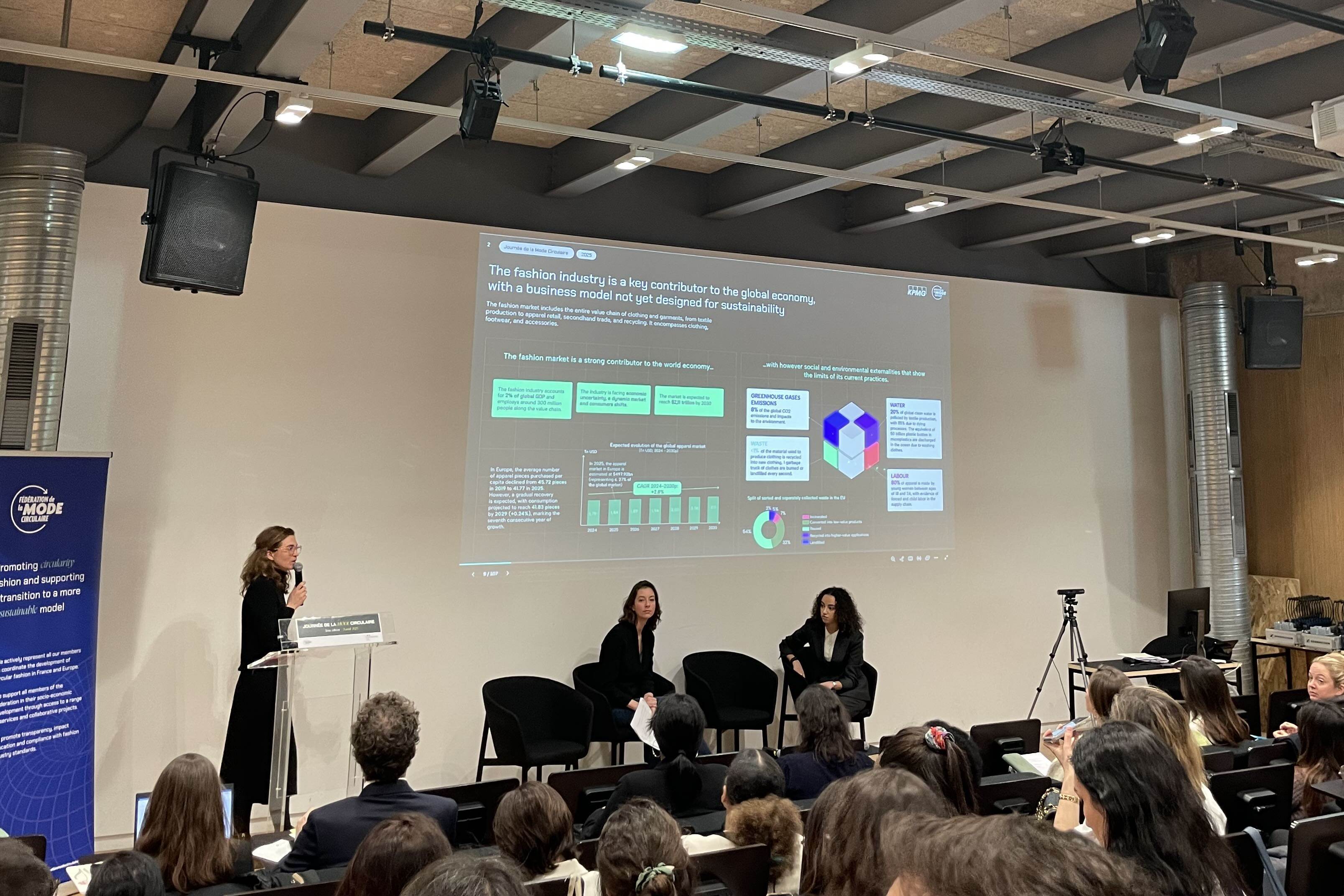Report on Europe’s circular fashion market
23/04/2025

The research team interviewed 40 experts to gauge the potential economic benefits of evolving consumer and industry practices as well as EU legislation. In its research, it identified four pillars as the basis of circularity in fashion: Reinvent, Reuse, Repair and Recycle. Taken together as representing the foundation of a future circular fashion sector, the report estimates that they could generate €31.3 billion and create 88,500 jobs by 2030. This could “unlock business opportunities that supportive regulation could further accelerate,” the authors noted.
The Reinvent pillar is described as covering upstream operations, including eco-design as well as rethinking sourcing and production to minimise waste and environmental impacts. Reuse covers resale and rental business models. In 2024, the second-hand market in Europe was pegged at an estimated €16.9 billion, based on research by Future Market Insights Inc., Twice, Statista and KPMG data.
The European Union market for repair services for all products was believed to represent €21.5 billion in 2020. Apparel and footwear repairs are estimated to make up 10% of the total, based on data from the French market. In France, repairing has recently benefitted from a government promotional programme and bonuses (a €154 million budget over a five-year period from 2023 to 2028), making this option more compelling for French consumers.
To assess the European recycling market, KPMG included the UK in its analysis and estimated it amounted to €1.4 billion in 2024. This ‘pillar’ is expected to show limited growth without strong incentives, the report said. It also noted that the limited scale of committed investments in textile recycling infrastructure make assumptions on future growth difficult to weigh up.
In their conclusion at the congress, representatives from KPMG stressed three points: the need to implement design for circularity; the need for better data and traceability; and the need to enable scale to make these circular business models profitable.
In his introduction to the event, Maxime Delavallée, head of the organisation founded in 2022, said that the FMC now had some 300 members that extend beyond France.











